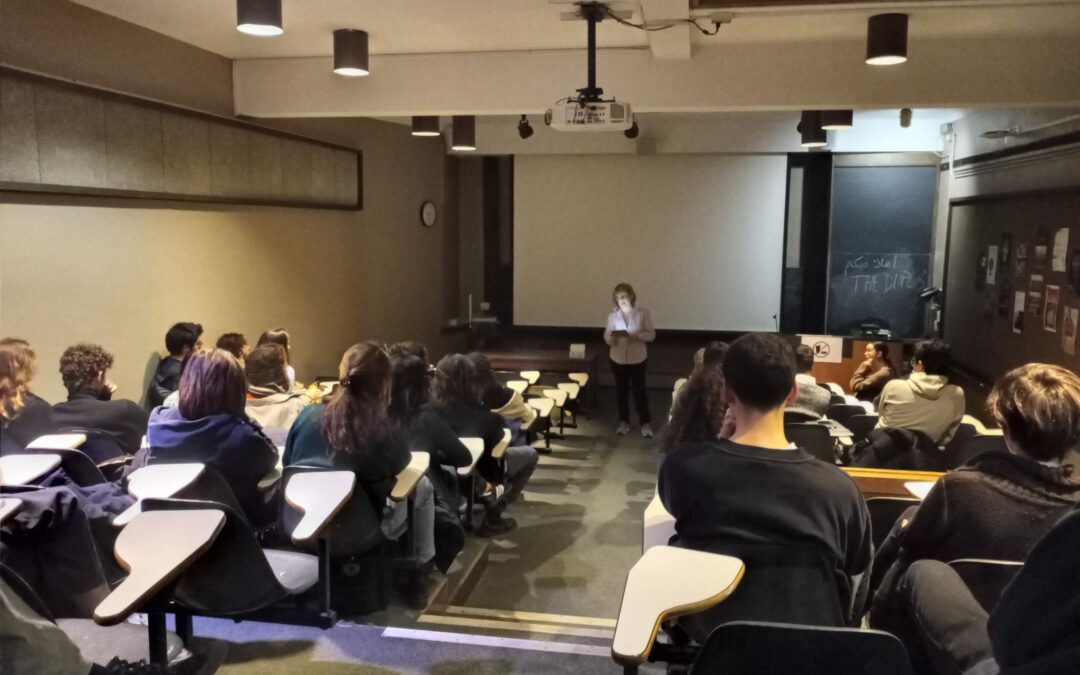Rula Jurdi delivered the following presentation in Montreal as part of a screening of the film, The Dupes, based on the work of Ghassan Kanafani, in Montreal, Quebec. The screening was part of the commemorative events and actions in honour of Samah Idriss, Lebanese Arab revolutionary thinker, writer and publisher, and a co-founder of the Masar Badil. Rula Jurdi Abisaab is Professor of Islamic History at the Institute of Islamic Studies, McGill University, where she has worked since 2004.
Remembering Samah, Commemorating a Day of International Solidarity with the Palestinian People
November 2022
Faced with its limitations and failures, the United Nations has since 1978 marked a day of international solidarity with the Palestinian people. Those of us, who saw the many faces of the plight of the Palestinians under the Israeli apartheid state, have taken this event away from the United Nations, hoping to carry the wounded and muffled voices of the Palestinians across the world, and to turn this event into a protest against the peace provisions and discourse, which the United Nations has produced and protected since. In November 1977, 75 years ago, the UN General Assembly adopted Resolution 181, previously stipulated by the British colonizers, to divide Palestine into two artifial entities, a Jewish state, and a so-called Arab state, leaving Jerusalem theoretically in a limbo state but effectively under apartheid regulatoray laws and practices, political, economic, religious, and cultural. Today, we stand in solidarity with all the Palestinian men, women, and children who suffered and who died fighting against the occupation and the dismantling of Palestine. We stand in solidarity with all the indigenous nations whose lands and lives were stolen from them by colonialism, including the past inhabitants of these premises we stand on, the First Nations, especially the Haudin-O-Sany (Haudenosaunee), Huron, Abenaki, and the Anish Inabeg (Ansihinabeg).
The film we show today is based on the novel, Rijal fi al-Shams, authored by one of the most celebrated Palestinian thinkers, novelists, and activists of the 20th century, Ghassan Kanafani. We could not think of a better way to commemorate this event and pay homage at the same time to a prominent Lebanese activist, children-story writer, linguist, and thinker, like Samah Idriss than to show this film.
In 2002, during the massacre of Janīn, Samah co-founded the BDS in Lebanon which launched several campaigns against Lebanese supporters of normalizing relations with Israel; campaigns that traversed education, politics, art, literature, science, and sports.[1] As the chief editor of a pioneering Arab magazine, al-ʾĀdāb, Samah attacked intellectual normalization with Israel, al-taṭbīʿ al-thaqāfī, and the discourse of “peace” which had spread in Lebanon, especially among the intellectuals. He declared that the BDS is not a substitute for armed struggle for the liberation of Palestine. A true political and socio-economic reform in Lebanon and the Arab region, he added, cannot be achieved without solutions to over 300,000 Palestinian refugees. There is indeed, one and only solution for their plight, he noted, “their right to return to their homes and villages throughout historic Palestine”. But until Palestinians can return to their land they must be granted all their civil and political rights in Lebanon.
The Palestinian struggle for liberation remained throughout this period, the nexus of Samah’s political activism, intertwined with a committment to leftist secular democratic ideals. He drew inspiration from intellectuals and activists associated with the Popular Front for the Liberation of Palestine, the most important of whom were Ghassan Kanafani and Maher al-Yamani. He was involved in launching the Ghassan Kanafani Prize in Ba`labak Lebanon,[2] tied to the Campaign for Boycotting Israel. In his editorial, “Min ajli Ghassānin Jadīd” (For a New Ghassan), July 2017, he asks: “Why do we return to Ghassan, year after year, with or without an occasion?”,[3] to answer that, Ghassan is a “guide and a proof”, against our disappointing present, and the state of the intellectual and political conglomerates in the Arab World. We turn to him to compensate for our deficiencies, our flaws. We also turn to Ghassan to regenerate meaning and hope, specifically because he was not merely a political leader and ideologue, but also a novelist, journalist, short story writer, writer of children’s books, a literary and artistic critic and an artist.[4] His impact is felt in several fields and by people from different walks of life. In many ways, Samah appears to have shaped himself after Ghassan Kanafani, and kept drawing out connections to him reflected in the questions he posed to his ghost over the years, asking himself once what Ghassan would have contributed to the age of electronic social networks, had he been alive today, and what he would make of the many activists who have ended up confining their energies to “tabshīr fawqī” (top down proselytizing) through twitter and facebook.
Before we turn to the film, I will leave you with a few famous lines from Kanafani, which Samah loved to evoke:
أنا الذي أعرفُ أنّ الكلمةَ عندنا وسيلةٌ، وأنّها إنْ لم تستطعْ أن تتحوّلَ إلى حجرٍ في يدِ الأعزل، إلى جوادٍ تحت رجلٍ طريدٍ، إلى ضوءٍ في عينَيْ أعمى، فلتسقطْ إلى النِّسيانِ والغبارِ والصَّدأ
I am one who knows that the word, for us, is a means, and that if it cannot be transformed into a stone in the hand of the defenseless, a horse carrying the beseiged, a light in the eyes of the blind, let it be swept away by oblivion, dust, and rust.
Thank you.
Rula Jurdi
[1] The BDS campaigned against Ziad al-Duwayrī and his 2012 Oscar-nominated film “The Attack”, parts of which were shot in Israel. al-Duwayrī had said that he once splashed some water on a Palestinian neighbour and when the neighbour protested, he replied, “You know, Ariel Sharon should have wiped you all out”, and this gave him the idea for this film. See, https://www.aljazeera.com/opinions/2018/1/24/the-oscar-nominated-good-arab-ziad-doueir
[2] https://al-adab.com/article/غسان-كنفاني-شمسٌ-جديدةٌ-تشرق-في-مدينة-الشمسملف
[3] http://al-adab.com/adabupdated/article/من-أجل-غسّانٍ-جديد-ملفّ
[4] http://al-adab.com/adabupdated/article/من-أجل-غسّانٍ-جديد-ملفّ

